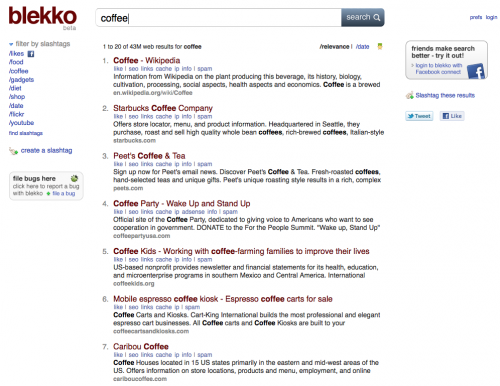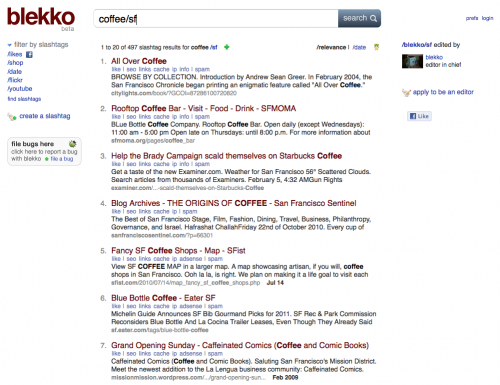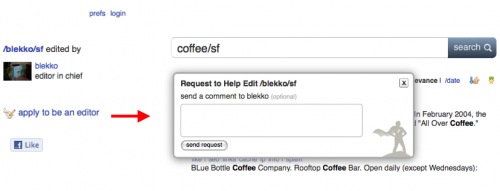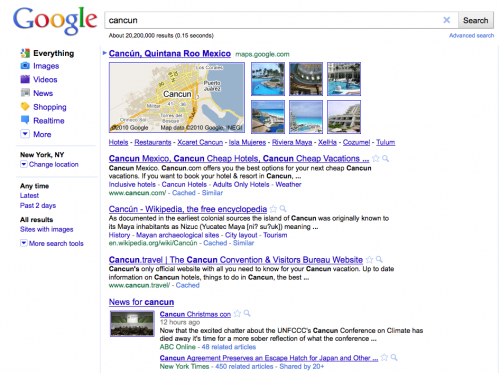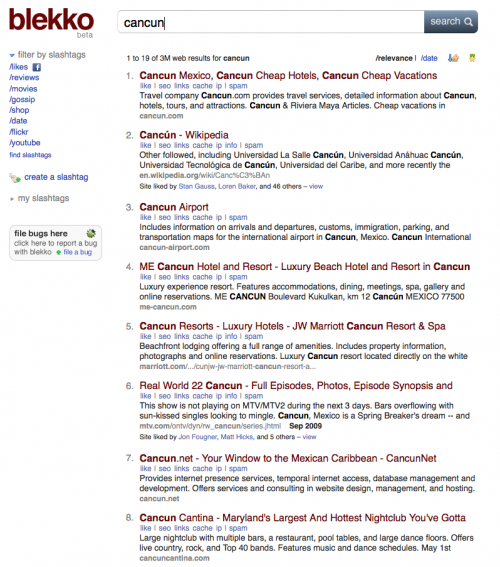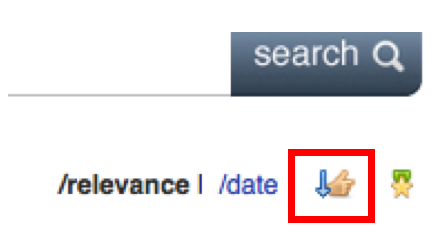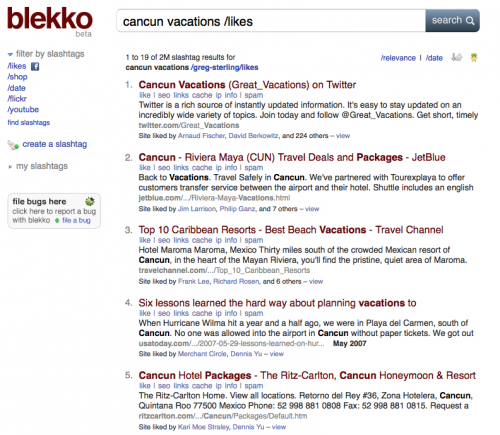Blekko, Bing & How Facebook Likes Are Changing Search
Bing has received a good deal of coverage for its integration of Facebook Likes into search results. In its Bing Search Summit last week, Microsoft said that Likes will influence ranking and create more personalized search results over time. As Microsoft’s Satya Nadella said, it’s “search quality foundationally influenced by the social graph.” Despite its […]
Bing has received a good deal of coverage for its integration of Facebook Likes into search results. In its Bing Search Summit last week, Microsoft said that Likes will influence ranking and create more personalized search results over time.
As Microsoft’s Satya Nadella said, it’s “search quality foundationally influenced by the social graph.” Despite its ambitions, Microsoft is being somewhat cautious in its roll out so far. Many people, including me, have seen very limited integration and continue to have difficulty finding “Liked” results on Bing.
By contrast, search startup Blekko is taking a much more aggressive approach to integrating the Social Graph data into search. The results are fascinating and point toward a future where social data are as powerful an influence on ranking as any factor — and maybe more.
Blekko’s core innovation is the “slashtag,” a curated or complied list of URLs that represent a content category or grouping. Slashtags can be created by any user though some are created via API. Slashtags are also filters that allow Blekko users to refine or change search results accordingly.
A basic illustration can be found in the difference between the results for “coffee” and “coffee/SF,” which shows coffee-related URLs tied to San Francisco (chosen in this case by Blekko CEO Rich Skrenta):
There’s no spam, content-farm content or gamed results in coffee/SF because the links are, one might say, “hand crafted” by Skrenta. The slashtag can be followed (if you’re signed in). And it can also be edited (Wikipedia style).
While slashtags can be extremely valuable and efficient, exposing them and getting people to understand and use them is Blekko’s challenge. However the new integration of Facebook’s Social Graph API gives Blekko a bigger and even more compelling story to tell around “social search.”
When you sign in to Blekko with Facebook Connect the site creates a slashtag called “/likes.” This includes all the sites that you and your network on Facebook have liked. What it means is that you can see and search only those sites your friends have liked, such as:
- cancun/likes
- gifts/likes
- new york sushi/likes
If I were planning a trip to Cancun Mexico, for example, I might start with a the general query “Cancun.” This is what the SERP looks like on Google:
There’s a mix of information here, most of it isn’t relevant for vacation planning. I can go into “more search tools” and click on the “social” link for these results:
These links are not that helpful because of how Google identifies social content. Here’s what the same query for “Cancun” looks like on Blekko:
It’s a similar mix of content. However If I’m signed in with Facebook Connect, I notice “Likes” from my network below individual entries:
The Blekko search filters available to me include relevance, data and, now, Likes:
I can now see which “Cancun” sites were most “liked” by my Facebook network. If I make my query a bit more precise (“Cancun vacations”) the Like filter becomes even more valuable:
I now have a list of URLs that have been (to varying degrees) “vetted” by my network. I may also discover sites that I wouldn’t have considered or been aware of because people I know Liked them.
Clearly the Like data aren’t perfect. But the corpus of Likes will grow over time, improving the overall experience. And, yes, over time companies and publishers will try and “game” Likes and there will be Like-spam.
However my sense is that Like-spam will be less effective and pervasive than traditional spam because it will be tough to get lots of people in my network to “Like” sites through some manipulation or incentive, though coupons and deals will be increasingly offered as a quid pro quo for Likes.
Conceptually and practically you can see how SERPs impacted by your Likes and your network’s could be very powerful. Along with Bing, this represents an entirely new approach to ranking. It also helps realize the promise of Q&A sites, which has never been totally fulfilled by the “real-time” implementations in the market. Facebook like data is “asynchronous Q&A.” I go in to see what places and sites my network has “recommended” and they’re present when I need them.
Blekko also allows me to create a personal repository or directory of URLs (for later reference) by Liking individual links (which then appear in your news feed on Facebook of course).
Blekko now gives users three ways to search: default web results, slashtags (human/expert curation) and Likes. But the addition of the Social Graph API data gives Blekko a larger and more “accessible” story to tell as it tries to answer the “why” question for mainstream searchers: why should I use Blekko? The answer is now: because you can find sites your friends have recommended.
I asked Blekko CEO Rich Skrenta last week why Google wouldn’t do this itself. He opined that for several reasons, in large part because the two sites were direct rivals, it was unlikely that Google would integrate Facebook Like data as Blekko has done.
There are probably two seismic shifts in search happening right now: mobile and social. Mobile is further along in some ways, but social may be more significant over time. And with Blekko we can now concretely see, through the integration of Like data, how the network may become the new algorithm — or, if not, a major influence on it.
Contributing authors are invited to create content for Search Engine Land and are chosen for their expertise and contribution to the search community. Our contributors work under the oversight of the editorial staff and contributions are checked for quality and relevance to our readers. The opinions they express are their own.
Related stories
New on Search Engine Land
